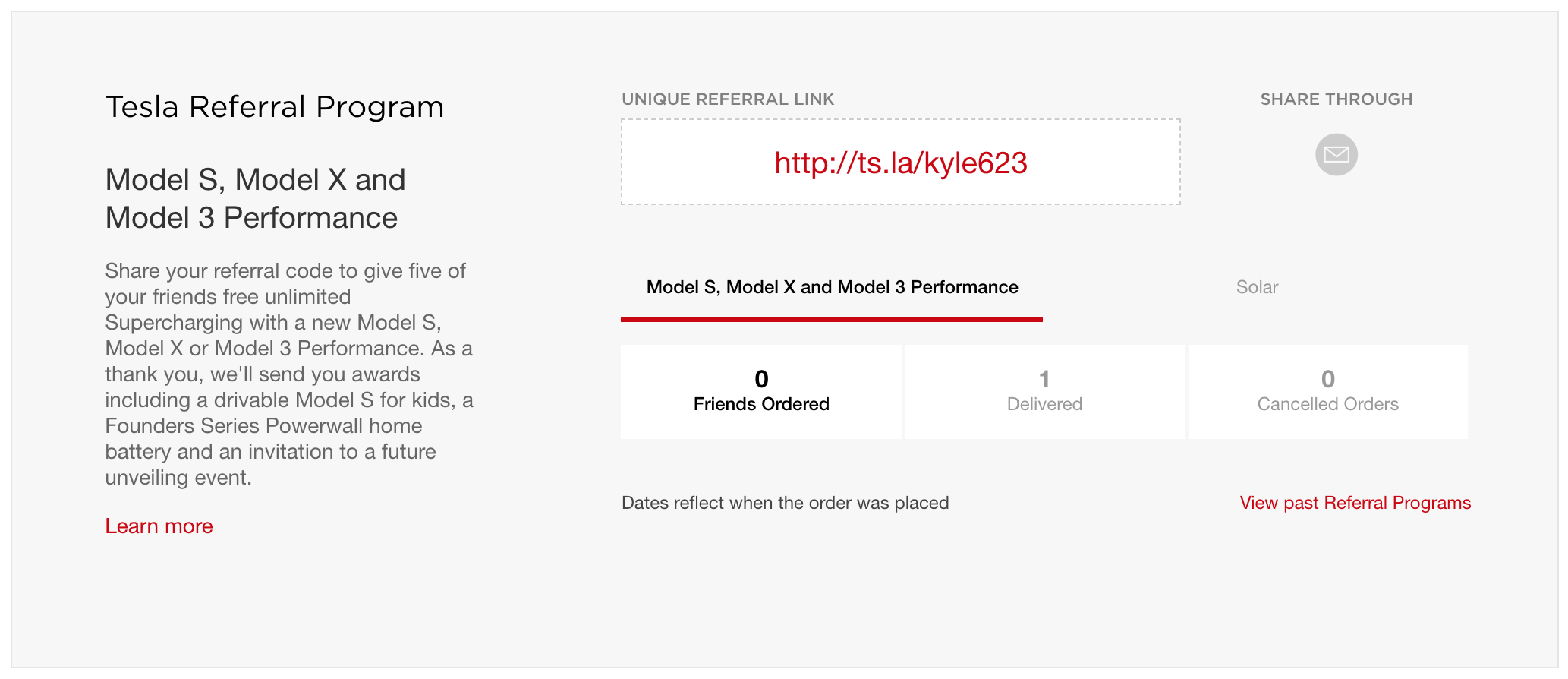
The time it takes to charge an electric car's battery can be affected by many factors. The size of the battery is one of the most important factors. The size of the battery is a major factor in how long it takes to charge. In hot weather, charging times may be slower. Other than this, charging times can be affected by the power input to a charging station.
A fast charging station is the fastest way to charge your car. This type of station can recharge your batteries in a fraction of the time of a Level 3 charger. This method can only be used for certain models of electric cars. There are many public and domestic fast-charging stations available in your locality. You will typically only be able to charge your car to 80 percent. But, it can be done in under 30 minutes. These benefits include cost savings as well as the fact that your car can be charged from anywhere in the house.

A number of companies have invested in the most up-to-date charging technology. DCFCs are planned to be constructed in 17 interconnected countries, which will allow you charge your EV more quickly. With the right charger, the right charging station and you can be driving electric in no time.
You can also find a nearby charging station to help speed up your charge. Some people opt to do this, especially if they are traveling long distances. Aside from this, it can be a good idea to do a partial charge before a trip, since this will save you a lot of money. Because the trip will take you longer, the more energy it will consume.
Apart from these, there are several other factors that may affect the charging speed of your EV. All three factors are crucial: the kilowatthours of your battery, the power output and the temperature of outside air. These numbers aren't always easy to calculate. These things will give you an accurate estimation of the charging time.
Aside from these factors, there are many more that can make your life as an EV driver much easier. For example, a new EQS is said to be able to charge from 0% to 100% in about 12 hours. There are also a number of mobile charging robots that can be used to recharge the battery of your EV on the go. This is especially helpful for those who do not have access to many charging stations. In certain cases, you might be able even to hook up your battery to a charger at home and plug it into your wall to charge your vehicle over night.

A new EQS can be charged in about a day-and-a-half. However, it is possible to get a full charge in as little as an hour using a Level-2 home charging station. The charging time for a 50 kWh battery is approximately eight hours with a home charger. A 100 kWh battery can take 12 hours. The average battery life depends on the power input from the charging station, battery capacity and the distance you plan to drive.
FAQ
What qualifications do I need to be a truck mechanic?
Although you don't need to have any formal qualifications, your experience working with trucks and engines is invaluable. Your expertise is invaluable because you know how quickly and efficiently to diagnose problems.
Your knowledge of diesel technology will allow you to identify the parts that are required to fix our vehicles.
How can I prepare for a apprenticeship as a mechanic?
It is important to have an understanding of what you are going into. You must understand the workings of cars. You will be able to know exactly where to begin when you arrive at the garage for your first day.
It is also important to be able to fix small problems like broken lights or tires.
This will teach you how to diagnose problems and fix them yourself.
It is also important to know how the different pieces fit together in order to put them together again.
Finally, you need to be able to safely and efficiently use tools.
All these things will help you to become a competent mechanic.
Is being an auto mechanic a promising career choice?
If you are determined to excel, the automotive industry offers many opportunities. You can only succeed in this field if you work hard and learn from others.
Because you will be spending most of your time communicating with customers and employees, you will need excellent communication skills. You must also be willing and able to travel long distances, which can make it difficult to commute.
You can take classes at universities and community colleges if you are interested in a career as an automotive technician. Many schools offer programs specifically designed for students interested in auto repair, sales, or customer service.
You should choose to study mechanical engineering if you want to get a degree. You can earn a bachelor's in as little four years.
Many companies will hire students straight out of college. Therefore, it is a good idea to look for employment while still pursuing part-time studies.
After you've finished your education, it's likely that you'll need to go through some training before you can be hired as an auto technician.
This means you'll need pass exams like the Automotive Services Excellence (ASE), certification exam. This test covers topics including engine maintenance, brakes, steering systems, suspension, and more.
Once you pass the ASE test, your license can be applied for by the National Institute for Automotive Service Excellence.
You can repair vehicles owned by private citizens with a license. You will be compensated based on how many services you performed.
It is important to remember that not all states require licensing. However, if you plan to work outside your home state, you'll need to obtain a license.
Some states don’t issue licenses until a certain amount has been completed. If this applies to you, then you may need to find another option.
Is it hard to get work as an auto mechanic?
It is possible. Many garages advertise their vacancies online, and many people apply just because they think it might be fun. Try applying to a few jobs and seeing if the garages accept student applications. Alternatively, you could ask friends and family if they know anyone who works in the industry. They may be happy to recommend someone.
What jobs are available for car mechanics?
Three main areas of employment are available for car mechanics:
-
Automotive repair shops
-
Dealerships
-
Independent garages
Automotive repair shops
Most people think of this as the first step to becoming a mechanic. It's the easiest way for most people to get started. You can either work at a shop owned by someone else or set up your own business.
If you choose to work at a store, you need to join a union. Once accepted into the union you will be trained by the union.
You'll be ready for work once you have completed the training.
You will need to register if your garage is going to be open. After registering, you'll be required to meet certain standards.
Once you register, you'll receive a license that allows you to operate your garage.
Your license will permit you to sell spares parts and perform minor repairs. It won't permit you to fix serious engine problems.
Customers will expect you to not only sell spare parts but also provide advice and guidance.
Dealership jobs
Most dealerships only employ mechanics who have a specific skill set. They might be able to only fix brakes or replace tires.
Some dealerships have the option to hire general mechanics who can take care of all aspects.
Some positions require that applicants complete training before they can be allowed to work. Employers can then choose the best candidates for their job.
Some dealerships will hire graduates straight from college. These graduates are already familiar with basic mechanics and can therefore learn about cars.
Independent garages
Independent garages don't belong to any particular dealership. Instead, they tend to focus on providing high-quality service.
Independent garages are not associated with any companies so they can afford higher wages. This means that these jobs are usually more lucrative than those at dealerships.
However, independent garages may not be better places to work. Many business owners prefer to be in control of their businesses than to delegate it to employees.
It is possible to work long hours, but not have any control over the day.
You should also expect to earn lower wages than if you were employed at a dealership.
It's possible to switch between jobs. Ask your employer if you would like to work as a mechanic at a dealership.
Alternativly, you can apply directly to the garage owner if you are interested in working at an independent garage.
The bad news is that finding a new job isn't always easy. There are plenty of other factors that influence how much you earn.
For example, the type of vehicle you repair and whether you charge extra for labor.
Statistics
- According to the BLS, the median annual salary for automotive service technicians and mechanics in the United States was $44,050 in May 2020. (uti.edu)
- There were 749,900 jobs available for automotive service technicians and mechanics in 2016, which is expected to grow by six percent through 2026. (jobhero.com)
- 52% of Mechanics in the United States think their salaries are enough for the cost of living in their area. (indeed.com)
External Links
How To
How to become an Automotive Technician
An automotive technician provides repair services and maintenance to vehicles. He/she is employed at automobile dealerships, garages, service centres, and auto shops. He/she works with customers to repair their cars and trucks, ATVs or snowmobiles. An automotive technician must be capable of diagnosing problems and making repairs safely, accurately and efficiently.
A person who wants to work as an automotive technician should first obtain an associate degree from a vocational school. After completing this program the student must pass the National Institute for Automotive Service Excellence exam (ASE). ASE stands for American Society of Mechanical Engineers. The ASE certification test consists two sections. The first section tests for mechanical knowledge, the second for practical skills. To take the test, you must visit one of the approved testing locations. These locations can be found online or at your local auto dealer.
After passing the test, a candidate must pass a state examination before becoming licensed as an automotive technician. This process varies depending on where the applicant lives. Some states require candidates to complete a training program, while others let them study on their own. In addition, some states license technicians immediately after they receive their license, while others wait until they have completed at least six months of employment as an automotive technician.
To get started as an automotive technician, a person should apply to a local automotive dealership. Most new employees begin as apprentices once they are hired. Apprenticeship programs typically last three to four years. The apprenticeship program teaches students how to change oil, adjust brakes, replace tires, clean spark plugs, inspect engine compartments, and perform routine maintenance. Some students learn how to do advanced repairs, such as installing air filters, replacing shocks, repairing engines, and replacing transmission fluids. Schools offer classes during business hours. Some schools offer evening classes, however.
Once a student is done with his/her apprenticeship he/she can become a master journeyman. Journeymen typically spend four to five years learning how to install major systems, such as transmissions, differentials, steering gear, suspensions, and drive shafts. They also learn to perform complex repairs, such as remanufacturing engines, rebuilding transmissions, and troubleshooting electrical components. Because they have the experience and knowledge to do the job right, employers love hiring journeymen.
If a candidate successfully passes the required exams and receives a license, he/she might want to consider starting his/her own shop. According to Bureau of Labor Statistics, there were almost 1.7 million available jobs in the automotive mechanic field in 2010. This figure is expected to rise 18 percent between 2009-2020. Candidates who decide to open their own business should be prepared to invest thousands in equipment and supplies.
Automotive technicians' salaries depend on many factors such as the employer, whereabouts, education level and experience. On average, an unemployed person could earn $20,000 annually. A person with only a high-school diploma could make around $21,000 annually. Those with an associate's degree earned approximately $24,000 per year. A technician with a bachelor's degree earned approximately $27,000 annually. Masters' degree holders earn around $32,000 per annum. Salary increases are common, so a professional who earns less than $30,000 now could reasonably expect to earn $40,000 or more in just a few years.